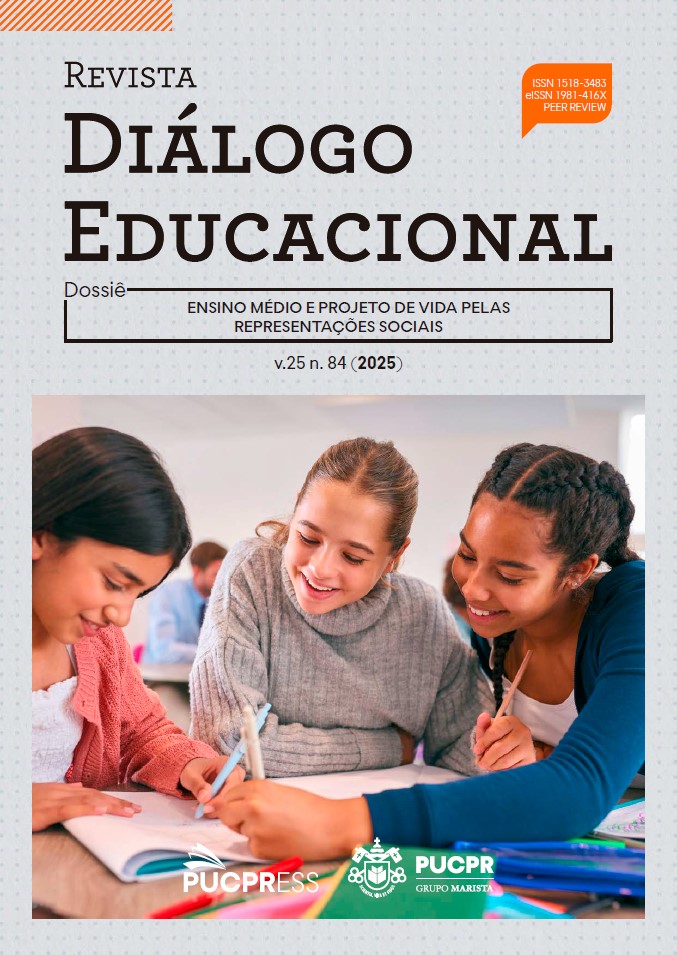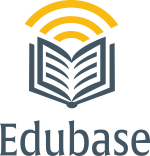Social learning and professional development
education workers’ communities of Practice
DOI:
https://doi.org/10.7213/1981-416X.25.084.AO07Abstract
As Communities of Practice (CoP) have highlighted the educational field as a privileged space for social learning. This study seeks to understand the impacts of social learning promoted in CoP in the professional development of educational workers. Semi-structured interviews were carried out with ten CoP coordinators focused on educational processes. The analysis of the interviews was conducted by Bardin's Content Analysis (2016), resulting in five categories, namely:: (i) place of CoP, (ii) internal challenges, (iii) external challenges, (iv) impacts and (v) results of CoP. These categories were further divided into 16 subcategories. The theoretical discussion is mainly based on the Theory of Social Learning, based on the perspective of Albert Bandura's Social Cognitive Theory. The figures indicate that learning in interaction with others, based on the relationship between behavior, cognition and environment, promotes a critical rationality that allows the individual to continually analyze and improve their practice. This process has effects that apply beyond the position or current function of the individual, once it also reflects in the personal sphere and in other professional areas. The results found in this study corroborate the existing national and international literature on the impact of CoP on the development of competencies, professional development and career advancement.
Downloads
References
BANDURA, A. Social learning theory. Englewood Cliffs, NJ: Prentice Hall, 1979. 247 p.
BARDIN, L. Análise de conteúdo. Tradução: Luis Antero Reto e Augusto Pinheiro. São Paulo: Edições 70, 2016. 279 p.
BAUMAN, Z. Comunidade: a busca por segurança no mundo atual. 2. ed. Rio de Janeiro: Zahar, 2022. 216 p.
BIN-HADY, W. R. A.; BUSABAA, N. A.; ABDULLAH, L. A. H. The Role of Communities of Practice in Developing Yemeni EFL Teachers' Continuous Professional Development. Revue Traduction et Langues, Algérie, v. 23, n. 1, p. 143-160, 2024.
FERNANDES, H. A.; MOURÃO, L.; GONDIM, S. M. G. Professional development: Proposition of a trans-occupational model from a qualitative study. Paidéia, Ribeiro Preto, SP, v. 29, p. 1–12, 2019.
FERNÁNDEZ-BALLESTEROS, R. et al. Self-efficacy and collective efficacy: structural relationships. Applied Psychology: An International Review, United Kingdom, v. 51, p. 107-121, 2002.
FREIRE, P. Pedagogia do Oprimido. 65. ed. Rio de Janeiro: Paz e Terra, 2018. 256 p.
FREIRE, P. Pedagogia da autonomia: saberes necessários à prática educativa. 25. ed. Rio de Janeiro: Paz e Terra, 1996. 76p. (Coleção leitura)
ILLERIS, K. Workplaces and learning. In: MALLOCH, M. L. et al. (org.). The SAGE Handbook of workplace learning. Londres, UK: Sage, 2011. p. 32-45.
IMBERNÓN, F.; SHIGUNOV, N. A.; SILVA, A. C. Reflexões sobre o conhecimento na formação de professores em comunidade de prática. Revista Ibero Americana de Educación, Madrid, España, v. 82, n. 1, p. 161-72, 2020.
LAVE, J.; WENGER, E. Situated Learning: Legitimate Peripheral Participation. Cambridge, UK: Cambridge University Press, 1991. 138 p.
LEE, D. H. L.; IP, N. K. K. The influence of professional learning communities on informal teacher leadership in a Chinese hierarchical school context. Educational Management Administration and Leadership, United Kingdom, v. 5, n. 2, p. 324-344, jan. 2021.
MINAYO, M. C. S. (org.). O desafio do conhecimento: pesquisa qualitativa em saúde. 14. ed. Rio de Janeiro: Hucitec, 2014. 408 p.
MONTEIRO, A. C. F.; MOURÃO, L. Desenvolvimento profissional: A produção científica nacional e estrangeira. Revista Psicologia: Organizações e Trabalho, Florianópolis, SC, v. 17, n.1, p. 39-45, 2017.
MOURÃO, L.; FERNANDES, H. Percepção de trabalhadores acerca de inibidores e propulsores do desenvolvimento profissional. Psicologia: Teoria e Prática, São Paulo, v. 22, n. 2, p. 250–272, mai-ago. 2020.
NÓVOA, A. Escolas e professores: proteger, transformar e valorização. Salvador: Sec/IAT, 2022. 116 p.
OLIVEIRA, A. M.; PRATA, R. V. Comunidade de prática em revisão: a formação de professores de ciências em pesquisas no Brasil e em Portugal. Ensaio - Pesquisa em Educação e Ciências, Belo Horizonte, v. 25, 2023.
PASSOS, L. F. et al. Comunidades de Aprendizagem e práticas colaborativas nos processos de inserção profissional. Revista Eletrônica de Educação, São Carlos, SP, v. 14, 2020.
RIBEIRO, J.; SOUZA, F. N.; LOBÃO, C. Editorial: Saturação da Análise na Investigação Qualitativa: Quando Parar de Recolher Dados? Revista Pesquisa Qualitativa, São Paulo, v. 6, n. 10, p. iii-vii, abr. 2018.
SÆBØ, G. I.; MIDTSUNDSTAD, J. H. How can critical reflection be promoted in professional learning communities? Findings from an innovation research project in four schools. Improving Schools, United Kingdom, v. 25, n. 2, p. 174-186, mar. 2022.
SILVA, T. O.; RAUSCH, R. B.; SANTOS, C. Implicações de uma comunidade de aprendizagem ao desenvolvimento profissional docente de professoras da educação infantil em tempos de pandemia. Revista Brasileira de Pesquisa sobre Formação de Professores, Mariana, MG, v. 14, n. 29, p. 43–56, 2022.
TONG, A.; SAINSBURY, P.; CRAIG, J. Consolidated criteria for reporting qualitative research (COREQ): a 32- item checklist for interviews and focus group. International Journal for Quality in Health Care, United Kingdom, v. 19, n. 6, p. 349-357, set. 2007.
VYGOTSKY, L. S. Mind in Society. Boston: Harvard University Press, 1978. 159 p.
WENGER, E. Communities of practice: learning, meaning and identity. Cambridge, UK: Cambridge University Press, 1998. 336 p.
WENGER-TRAYNER, E. et al. Communities of practice - Within and across organizations a guidebook. Sesimbra, PT: Social Learning Lab, 2023. 240 p.
WENGER-TRAYNER, E.; WENGER-TRAYNER, B. Learning to make a difference: Value Creation in Social Learning Spaces. Cambridge, UK: Cambridge University Press, 2020. 290 p.
Downloads
Published
How to Cite
Issue
Section
License
Copyright (c) 2024 Editora Universitária Champagnat

This work is licensed under a Creative Commons Attribution 4.0 International License.
O(s) autor(es) transfere(m), por meio de cessão, à EDITORA UNIVERSITÁRIA CHAMPAGNAT, pessoa jurídica de direito privado, inscrita no CNPJ/MF sob o n.º 76.659.820/0009-09, estabelecida na Rua Imaculada Conceição, n.º 1155, Prado Velho, CEP 80.215-901, na cidade de Curitiba/PR, os direitos abaixo especificados e se compromete a cumprir o que segue:
- Os autores afirmam que a obra/material é de sua autoria e assumem integral responsabilidade diante de terceiros, quer de natureza moral ou patrimonial, em razão de seu conteúdo, declarando, desde já, que a obra/material a ser entregue é original e não infringe quaisquer direitos de propriedade intelectual de terceiros.
- Os autores concordam em ceder de forma plena, total e definitiva os direitos patrimoniais da obra/material à EDITORA UNIVERSITÁRIA CHAMPAGNAT, a título gratuito e em caráter de exclusividade.
- A CESSIONÁRIA empregará a obra/material da forma como melhor lhe convier, de forma impressa e/ou on line, inclusive no site do periódico da EDITORA UNIVERSITÁRIA CHAMPAGNAT, podendo utilizar, fruir e dispor do mesmo, no todo ou em parte, para:
- Autorizar sua utilização por terceiros, como parte integrante de outras obras.
- Editar, gravar e imprimir, quantas vezes forem necessárias.
- Reproduzir em quantidades que julgar necessária, de forma tangível e intangível.
- Adaptar, modificar, condensar, resumir, reduzir, compilar, ampliar, alterar, mixar com outros conteúdos, incluir imagens, gráficos, objetos digitais, infográficos e hyperlinks, ilustrar, diagramar, fracionar, atualizar e realizar quaisquer outras transformações, sendo necessária a participação ou autorização expressa dos autores.
- Traduzir para qualquer idioma.
- Incluir em fonograma ou produção audiovisual.
- Distribuir.
- Distribuir mediante cabo, fibra ótica, satélite, ondas ou qualquer outro sistema que permite ao usuário realizar a seleção da obra ou produção para recebê-la em tempo e lugar previamente determinados por quem formula a demanda e nos casos em que o acesso às obras ou produções se faça por qualquer sistema que importe em pagamento pelo usuário.
- Incluir e armazenar em banco de dados, físico, digital ou virtual, inclusive nuvem.
- Comunicar direta e/ou indiretamente ao público.
- Incluir em base de dados, arquivar em formato impresso, armazenar em computador, inclusive em sistema de nuvem, microfilmar e as demais formas de arquivamento do gênero;
- Comercializar, divulgar, veicular, publicar etc.
- Quaisquer outras modalidades de utilização existentes ou que venham a ser inventadas.
- Os autores concordam em conceder a cessão dos direitos da primeira publicação (ineditismo) à revista, licenciada sob a CREATIVE COMMONS ATTRIBUTION LICENSE, que permite o compartilhamento do trabalho com reconhecimento da autoria.
- Os autores autorizam a reprodução e a citação de seu trabalho em repositórios institucionais, página pessoal, trabalhos científicos, dentre outros, desde que a fonte seja citada.
- A presente cessão é válida para todo o território nacional e para o exterior.
- Este termo entra em vigor na data de sua assinatura e é firmado pelas partes em caráter irrevogável e irretratável, obrigando definitivamente as partes e seus sucessores a qualquer título.
- O não aceite do artigo, pela EDITORA UNIVERSITÁRIA CHAMPAGNAT, tornará automaticamente sem efeito a presente declaração.













